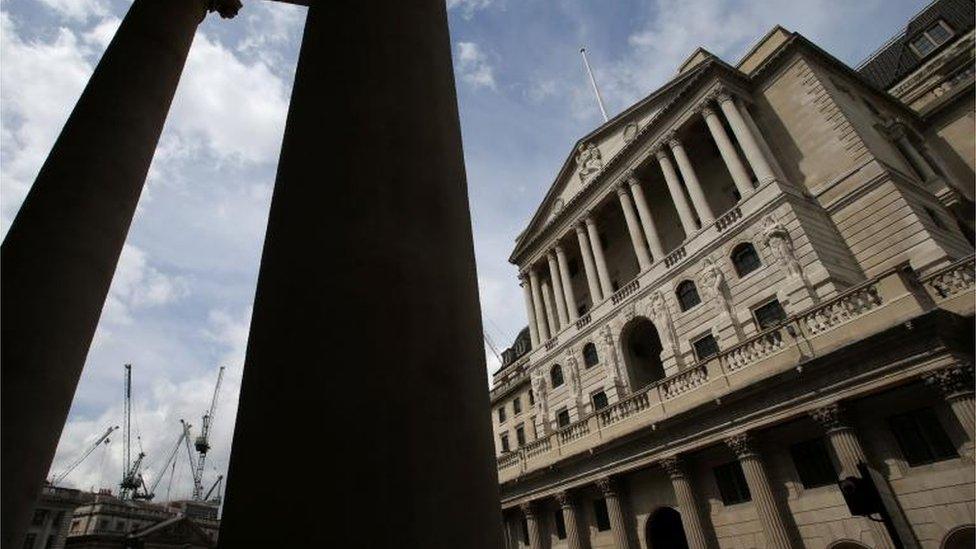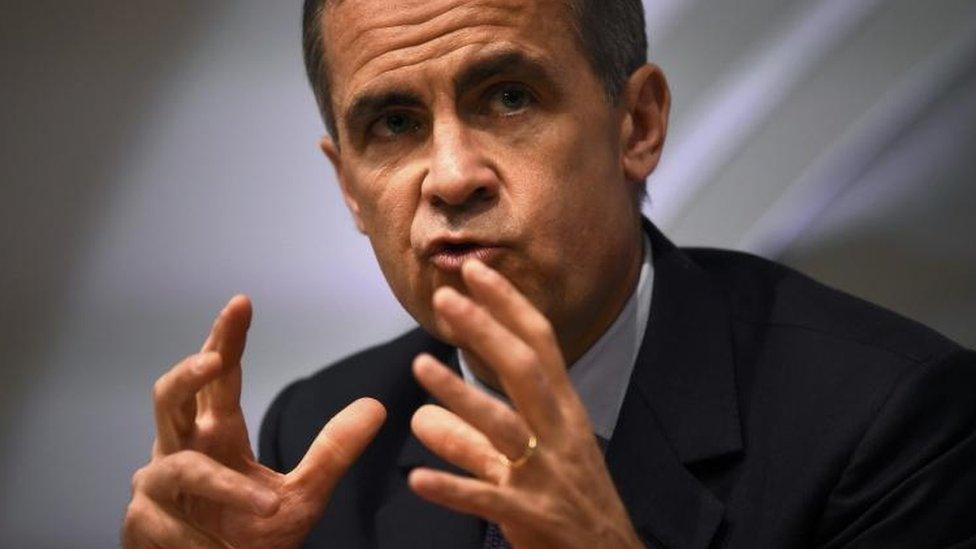Interest rates on hold - for now
- Published
- comments

So, the interest rate cut is off, for now.
The Monetary Policy Committee (MPC) has decided - significantly by a 8-1 majority rather than unanimously - that a little bit of patience is necessary to see how the economy performs over the next few weeks.
The markets' judgement that Mark Carney had clearly signalled a July rate cut two weeks ago when he said "some monetary policy easing will likely be required over the summer" has proved erroneous.
Some might mutter about the governor showing flashes of the "unreliable boyfriend" he has been accused of before when he has guided the market.
However, the governor's words do not contradict today's decision. "Over the summer" is not one month.
And monetary easing can mean more than just a cut in interest rates.
The MPC is dealing with two competing forces.
First, a slowdown in economic growth following the referendum vote which many economists believe could tip the economy into recession.
Second, a possible increase in inflation sparked by the fall in the value of sterling.
At the moment the data on the former is limited.
The MPC did point to some "preliminary signs" that household and business confidence has been affected by the referendum result.
It said there have been some "sharp falls" in sentiment measures.
"Taken together, these indicators suggest economic activity is likely to weaken in the near term," the minutes say.
But, against that, the financial markets have continued to function which has "dampened rather than amplified" the effects of the 23 June vote.
And economic activity is described as "solid" in the run-up to the referendum.

Bank governor Mark Carney has been wary of cutting rates too deeply
The Bank also made it clear that "most" members of the MPC "expect monetary policy to be loosened in August" when the Inflation Report is published.
That does not necessarily mean an interest rate cut at that point.
It could mean more stimulus via the purchasing of government bonds, or quantitative easing.
Or more action to boost lending via direct support to banks.
On inflation, any upward pressure is still slight.
Inflation is at 0.3%, well below the 2% target.
The "sharp" fall in sterling is likely to be inflationary as import prices rise.
But, so far, there is little evidence of that.
Short-term market expectations of an increase in inflation have risen slightly.
But over the longer term, expectations are still muted.
The deflationary pressures of low commodity prices and a slow devaluation of the renminbi - making Chinese exports cheaper - are acting across the globe to depress prices.
To be clear, interest rates may not fall further this year.
Whether they do will depend on the MPC's judgement on the best way to balance the two competing forces in the economy.
And how the economy performs over the next few weeks and months - rather more a function of government policy on tax, spending and negotiations with the European Union, than it is of monetary policy.
As Mr Carney has always made clear - the levers the Bank has at its disposal can only do so much.
He has also been wary of cutting rates too deeply - and has signalled that he is not a big fan of negative rates - because of the damage that can do to retail bank profitability and the ability to lend.
Sentiment is certainly moving towards more stimulus - the form that stimulus will take, and when, is still unclear.